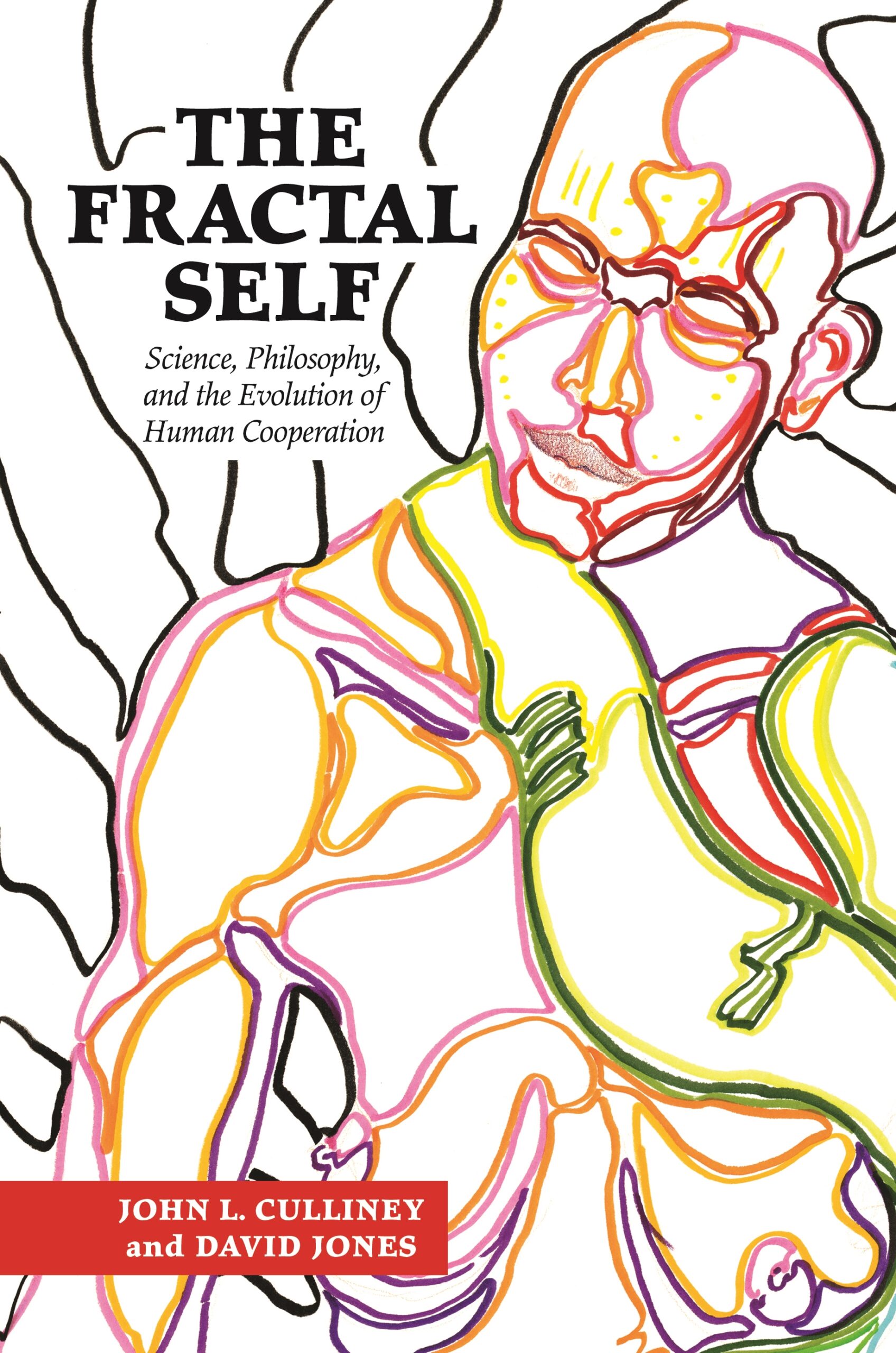The Fractal Self: Science, Philosophy, and the Evolution of Human Cooperation
- About the Book
-
Our universe, science reveals, began in utter simplicity, then evolved into burgeoning complexity. Starting with subatomic particles, dissimilar entities formed associations—binding, bonding, growing, branching, catalyzing, cooperating—as “self” joined “other” following universal laws with names such as gravity, chemical attraction, and natural selection. Ultimately life arose in a world of dynamic organic chemistry, and complexity exploded with wondrous new potential.
Fast forward to human evolution, and a tension that had existed for billions of years now played out in an unprecedented arena of conscious calculation and cultural diversity. Cooperation interleaving with competition; intimacy oscillating with integrity—we dwell in a world where yin meets yang in human affairs on many levels. In The Fractal Self, John Culliney and David Jones uncover surprising intersections between science and philosophy. Connecting evidence from evolutionary science with early insights of Daoist and Buddhist thinkers, among others, they maintain that sagely behavior, envisioned in these ancient traditions, represents a pinnacle of human achievement emerging out of our evolutionary heritage. They identify an archetype, “the fractal self,” a person in any walk of life who cultivates a cooperative spirit. A fractal self is a sage in training, who joins others in common cause, leads from within, and achieves personal satisfaction in coordinating smooth performance of the group, team, or institution in which he or she is embedded. Fractal selves commonly operate with dedication and compassionate practice in the service of human society or in conserving our planet.
But the competitive side of human nature is susceptible to greed and aggression. Self-aggrandizement, dictatorial power, and ego-driven enforcement of will are the goals of those following a self-serving path—individuals the authors identify as antisages. Terrorist leaders are an especially murderous breed, but aggrandizers can be found throughout business, religion, educational institutions, and governments. Humanity has reached an existential tipping point: will the horizon already in view expand with cooperative progress toward godlike emergent opportunities or contract in the thrall of corrupt oligarchs and tribal animosities? We have brought ourselves to a chaotic edge between immense promise and existential danger and are even now making our greatest choice.
- About the Author(s)
-
John L. Culliney, Author
John L. Culliney, a biologist educated at Yale and Duke Universities, is professor emeritus of biology at Hawai‘i Pacific University.David Jones, Author
David Jones is professor of philosophy at Kennesaw State University, Atlanta.
- Reviews and Endorsements
-
- Culliney and Jones are very courageous in proposing such a thesis that the natural cooperative constant is somehow the fuel behind the universe’s evolution. This thesis gives a better understanding of the evolution of altruism and the rise of empathy. The book, in that regard, is fascinating in its attempt to prove that cooperation is the natural root of the making of the universe.
—Reading Religion-A Publication of the American Academy of Religion - The Fractal Self: Science, Philosophy, and the Evolution of Human Cooperation tells an epic story with the cogently argued thesis that deliberate collaboration is the most fecund source of human genius. Trespassing cultural boundaries, crisscrossing all familiar disciplinary divides, and wading into the metaphorical vortex, the authors advocate for a holistic, emergent way of thinking and an alluring new vision of the human self.
—Roger T. Ames, Humanities Chair Professor, Peking University - Coauthored by an evolutionary scientist and a cross-cultural philosopher, this book begins by explaining opposing paths of development in both cosmogony and evolution. Inspired by East Asian themes, the authors trace these same patterns in human development, rethinking models of politics, education, and ecology. With clarity and eloquence, they argue that humans can achieve true harmony only by cultivating a cooperative “fractal self” of interresponsive, holistic complexity. A singularly lucid, timely, and paradigm-shifting work.
—Thomas P. Kasulis, University Distinguished Scholar and Professor Emeritus, The Ohio State University - John Culliney and David Jones have managed something very unusual: a collaboration between experts, one in biology and one in philosophy. They initiate a dialogue between the natural sciences and the humanities—from chemistry to astrophysics, from ancient myth to East Asian thought—that reveals a prevalence of cooperation over competition. They tell compelling stories ranging over vast times and spaces, from “primal emergence” to evolution in the present, narratives that show the fractal self operating on all levels: from the subatomic, through the animal and human realms, to distant galaxies. And the wonder of it all is—it works!
—Graham Parkes, Professorial Research Fellow, University of Vienna
- Culliney and Jones are very courageous in proposing such a thesis that the natural cooperative constant is somehow the fuel behind the universe’s evolution. This thesis gives a better understanding of the evolution of altruism and the rise of empathy. The book, in that regard, is fascinating in its attempt to prove that cooperation is the natural root of the making of the universe.
- Supporting Resources
-





